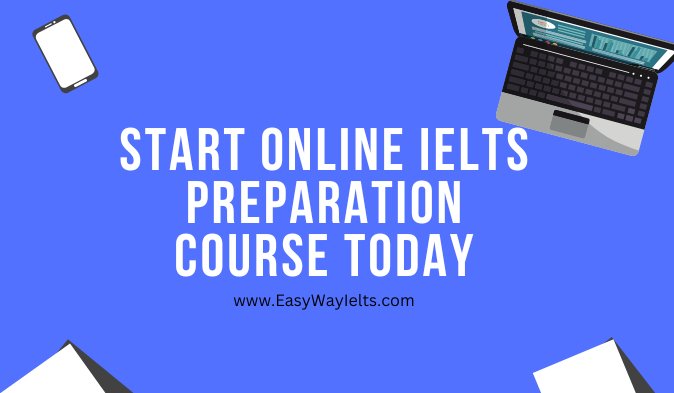For many non-native English speakers it is a big question “How to Prepare for IELTS”, the International English Language Testing System (IELTS) stands as a crucial step towards academic and professional pursuits in English-speaking countries.
Whether aiming to study abroad, pursue a career opportunity, or fulfill immigration requirements, excelling in the IELTS exam is often a pivotal requirement.
However, preparing for this test can be a daunting task, especially when English is not your first language.
Fear not, as this comprehensive guide is designed to provide valuable insights and effective strategies for non-native speakers embarking on their IELTS preparation journey.
From understanding the exam format to mastering essential skills, we delve into the tools and techniques that can lead to success on test day.
Whether you’re aiming for a high band score or simply seeking to boost your confidence, this guide aims to equip you with the knowledge and resources needed to excel in the IELTS exam as a non-native speaker.
How to Prepare for IELTS as a Beginner?
Even though starting your IELTS preparation as a beginner is both exciting and overwhelming. Here are some detailed steps to guide you through the process:
Step 1: Understand the IELTS Exam Format
- Familiarize yourself with the structure of the IELTS exam. It consists of four main sections: Listening, Reading, Writing, and Speaking.
- Know the types of questions you’ll encounter in each section and the time limits for each part.
Step 2: Set Your Goals
- Determine your target band score. Research the requirements of the institution or organization you are applying to.
- Your goals will guide your study plan and help you focus on areas that need improvement.
Step 3: Gather Study Materials
- Invest in IELTS preparation materials such as books, practice tests, and online resources.
- Look for reputable websites, apps, and YouTube channels dedicated to IELTS preparation.
Step 4: Improve Your English Skills
Make sure you try different strategies for each module and modify it as per your needs:
- Listening
- Start listening to English podcasts, news, movies, and TV shows.
- Practice listening for main ideas, details, and specific information.
- Use IELTS practice materials to simulate exam conditions.
- Reading
- Read English newspapers, magazines, and online articles.
- Focus on understanding the main ideas, supporting details, and the writer’s opinion.
- Practice skimming (reading quickly for the main idea) and scanning (searching for specific information).
- Writing
- Begin with basic writing exercises such as journaling or writing short essays.
- Familiarize yourself with different types of IELTS writing tasks (Task 1: Graphs, Charts, Tables; Task 2: Essay).
- Practice organizing your ideas coherently and developing arguments.
- Speaking
- Engage in conversations with English speakers, if possible.
- Practice speaking about various topics, expressing your opinions clearly.
- Record yourself speaking and listen for pronunciation, fluency, and grammar.
Step 5: Take Diagnostic Tests
- Start with a diagnostic test to assess your current level.
- Identify your strengths and weaknesses in each section.
- Use the results to tailor your study plan and focus on areas that need improvement.
Step 6: Create a Study Plan
- Develop a structured study schedule that fits your lifestyle and commitments.
- Allocate specific times for each section of the exam.
- Set realistic milestones and deadlines to track your progress.
Step 7: Practice Regularly
- Consistent practice is key to success. Dedicate time each day to practice listening, reading, writing, and speaking.
- Use a variety of IELTS practice materials to expose yourself to different question types and formats.
- Review your answers, identify mistakes, and learn from them.
Step 8: Seek Feedback and Guidance
- Join IELTS preparation classes or workshops as available.
- Ask a friend, teacher, or language partner to review your writing and speaking tasks.
- Utilize online forums and communities to connect with other IELTS candidates for tips and advice.
Step 9: Monitor Your Progress
- Regularly take practice tests to track your improvement.
- Analyze your scores and identify areas where you are still struggling.
- Adjust your study plan accordingly to focus on weak areas.
By following these steps and staying committed to your IELTS preparation, you will build the skills and confidence needed to achieve your desired band score.
How to Do Advanced Level IELTS Preparation?
Preparing for the IELTS exam at an advanced level requires a strategic and focused approach to ensure you can achieve a high band score.
Here are some detailed steps to help you with your advanced-level IELTS preparation:
Utilize Advanced Study Materials
- Seek out advanced-level IELTS preparation books and materials that focus on higher-level vocabulary, complex sentence structures, and academic topics.
- Look for materials that provide in-depth analysis of different question types and strategies for tackling them.
Enhance Your Vocabulary and Lexical Resource
- Regularly read academic articles, journals, and essays to expose yourself to advanced vocabulary.
- Create vocabulary lists based on different themes such as technology, environment, politics, etc.
- Use advanced vocabulary in your speaking and writing practice to demonstrate a wide range of lexical resources.
Develop Critical Reading Skills
- Practice reading and analyzing complex texts with a critical eye.
- Focus on understanding the author’s tone, purpose, and argument in academic passages.
- Engage in discussions or debates on various topics to develop your ability to form critical opinions.
Master Advanced Writing Techniques
- Practice writing essays that require in-depth analysis, argumentation, and evaluation of ideas.
- Learn how to effectively use advanced linking words and phrases to connect ideas cohesively.
- Work on developing a clear and sophisticated writing style suitable for academic contexts.
Refine Your Speaking Skills
- Engage in advanced-level conversations and debates on diverse topics.
- Practice expressing complex ideas clearly and fluently, using a wide range of vocabulary.
- Record yourself speaking and analyze your pronunciation, intonation, and fluency to identify areas for improvement.
Simulate Exam Conditions
- Take full-length practice tests under timed conditions to simulate the exam environment.
- Use official IELTS practice tests for realistic exam questions and formats.
- Analyze your performance, identify weak areas, and focus on improving them in subsequent practice sessions.
Seek Feedback from Experts
- Consider taking advanced-level IELTS preparation courses or hiring a tutor who specializes in IELTS.
- Attend workshops or seminars focused on advanced strategies for achieving a high band score.
- Submit practice essays and speaking recordings for expert feedback to refine your skills further.
Stay Updated with Current Affairs and Academic Topics
- Read newspapers, journals, and reputable websites to stay informed about current events and academic discussions.
- Practice discussing and writing about these topics to develop a broader knowledge base.
- Establish a rigorous study schedule that includes daily practice sessions for each section of the exam.
- Review and revise previously learned materials regularly to reinforce your knowledge.
- Stay motivated by setting small, achievable goals and celebrating your progress along the way.
By following these advanced-level steps, you will be better equipped to tackle the IELTS exam with confidence and achieve your desired band score.
Conclusion
From understanding the exam format to honing your listening, reading, writing, and speaking skills, each stage of preparation plays a crucial role in achieving your desired band score.
Remember, consistency, dedication, and a positive mindset are your allies in this endeavor.
As you delve into advanced study materials, expand your vocabulary, and master the nuances of academic writing and speaking, you are not just preparing for a test but also enhancing your overall English language proficiency.
Ultimately, the IELTS exam is a gateway to exciting opportunities, whether it be pursuing higher education, advancing your career, or exploring new horizons.
With perseverance and a well-structured study plan, you are well on your way to showcasing your language abilities and achieving success on test day.
So, embrace the challenges, celebrate your progress, and approach your IELTS preparation journey with determination.
We hope this guide served as a valuable companion, equipping you with the tools and knowledge needed to excel as a non-native speaker in the IELTS exam.
Keep practicing and good luck!
Frequently Asked Questions (FAQs)
- How can a non English speaker prepare for IELTS?
Non-English speakers can prepare for IELTS by understanding the exam format, practicing with study materials, improving language skills through reading and listening to English content, and taking regular practice tests.
- Is IELTS difficult for native speakers?
IELTS might still present challenges for native speakers, particularly in the Academic version, due to its specific format and requirements.
- Do native speakers need to prepare for IELTS?
Yes, native speakers may need to prepare for IELTS, especially if they are not accustomed to the test format or need to achieve a specific band score.
- How can I improve my English speaking for non-native speakers?
Non-native speakers can improve their English speaking skills by engaging in regular conversations with native speakers, practicing pronunciation, using language learning apps, and joining speaking clubs or language exchange programs.
- Is IELTS difficult for non English speakers?
IELTS can be challenging for non-English speakers due to the requirement of proficiency in all four language skills (listening, reading, writing, and speaking).
- What is the average IELTS score for non-native speakers?
The average IELTS score for non-native speakers varies, but a score of 6.5 is often considered a good benchmark for academic purposes, while a score of 7 or above is typically sought for professional or immigration purposes.
You also should know about Ielts Exam Fee.



